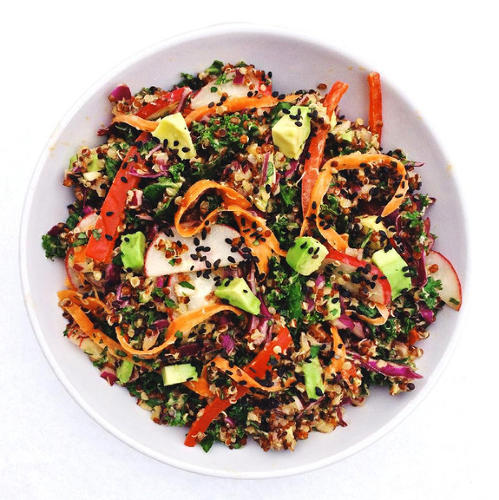All it takes is for Waleed Ally of the Project to do a story on the most controversial new issue for the Australian public to jump on board as evidenced in the latest case with the price cutting of milk and the instant backlash from the public to support Aussie farmers. Unfortunately, when it comes to the sustainable future of our cities, Waleed's stories have focused on the political powers, the governments' role in preventing climate change. Yes these stories have reached a significant audience and had a powerful influence. But Australian citizens can no longer play the blame game and sit back while we demand a more sustainable future for our country, shifting all the responsibility to the fault of our public policy. We need to take responsibility. Do shows like The Project avoid such stories because they're afraid of the response they'll receive from their viewership? Maybe negative response, maybe even decreased ratings. I cannot condemn The Project for relying on evoking passion and outrage in their responders towards the political and big business baddies however behavioural change is paramount to our future and those in the position to inspire it, refuse to step up.
One of our issues then is that all those articles informing the public of the detrimental effects of our unsustainable lifestyles, need to reach the greater population and unfortunately they're only read by those actually interested, those who are unlikely to be major contributors to the problem. How do we catch people? How do we educate? Interestingly, since starting my new job in a big company in March this year, I have been far more exposed to these kind of people, the advocates of sustainable behaviours. It's refreshing to see the articles constantly being posted on our company's social network platform and the growing support sustainable initiatives receive from these members of the building industry, those in positions to make a difference.
In this week already, two articles were shared hoping to deliver information throughout the business and help us choose more sustainable behaviours. The first was on the consumption of bottled water and the extreme levels of CO2 emitted, water used and waste produced compared to tap water. Cleverly, although delivering all the environmental sustainability facts of bottled water production and consumption, the article focused on the outrageous financial costs of bottled water to consumers at 1,000 times over the cost of production. If tonnes of CO2 and barrels of oil are incomprehensible to readers, they can certainly relate to money!

Source: Cool Australia 2016, Bottled Water, accessed 25 May 2016, <http://www.coolaustralia.org/bottled-water-secondary/>.
The second article addressed food sustainability in an anecdote on the writer's experience of giving up meat for a month. The basis of the study was veganism but, probably knowing that would have a hard time convincing the greater Australian audience, the writer expresses full vegan is not a necessity, but a focus on whole foods, locally produced and a reduction in meat consumption will have the same benefits. Similar to the water article, the writer of this journal reflects the sustainable outcomes of cutting the consumption of meat but, in this increasingly health-conscious environment, focuses on the health benefits of a vegan diet, specifically productivity.

Source: Segran, E 2016, 'How Giving Up Meat For a Month Improved My Productivity', Fast Company, 12 May 2016, accessed 24 May 2016, <http://www.fastcompany.com/3059731/your-most-productive-self/how-giving-up-meat-for-a-month-improved-my-productivity?utm_source=mailchimp&utm_medium=email&utm_campaign=fast-company-weekly-newsletter&position=4&partner=newsletter&campaign_date=05202016>.
Global knowledge of sustainable behaviours is growing and not only is this information becoming more available to an increasing number of people, it is becoming more 'in-your-face'. The public won't be able to avoid their responsibilities in the sustainable future of our world for much longer and it is our responsibility, as the informed population, to continue sharing this information, to reach the wider population quicker and ensure the information being published and shared is accurate.
No comments:
Post a Comment